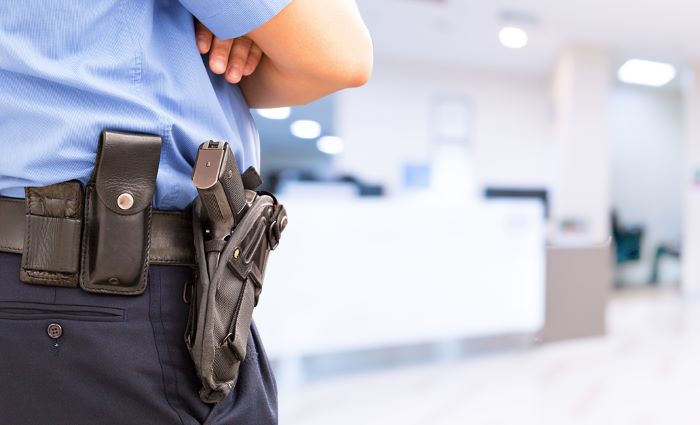Hospitals play a critical role in society by providing medical care and ensuring the well-being of patients and staff. With the increasing concerns about safety and security, hospitals are turning to armed security guards to protect their premises and personnel. However, selecting the right armed security guards for a hospital requires careful consideration to ensure a safe and secure environment without compromising the nature of healthcare services. Here we provide insights into the factors to consider when choosing armed security guards for your hospital.
1. Evaluate Training and Certification:
When hiring armed security guards, it is crucial to assess their level of training and certification. Look for guards who have completed relevant training programs, possess valid licenses, and are certified to carry firearms like guns, rifle and holographic sights. Adequate training ensures that guards have the necessary knowledge and skills to handle potential security threats effectively. Verify their training credentials and inquire about any specialized training related to healthcare settings.
2. Consider Experience and Background:
Experience in the field of security is invaluable when it comes to handling emergency situations. Look for armed security guards who have prior experience in healthcare or similar settings. Their familiarity with hospital environments, protocols, and potential risks can significantly enhance their effectiveness. Additionally, conduct thorough background checks to ensure the guards have a clean record and possess the necessary temperament and professionalism required for their role.
3. Assess Communication and Interpersonal Skills:
Strong communication and interpersonal skills are essential for armed
professional security guards in hospitals. They need to interact with patients, visitors, and healthcare staff on a daily basis. Guards should be able to communicate effectively, defuse tense situations, and provide reassurance when required. Excellent interpersonal skills allow guards to maintain a balance between maintaining security and creating a welcoming and compassionate environment.
4. Review Knowledge of Healthcare Regulations:
Hospitals operate under various healthcare regulations and protocols that armed security guards must adhere to. Ensure that the guards you hire are familiar with these regulations, including patient privacy (HIPAA) and emergency response procedures. Guards should understand the importance of respecting patient confidentiality and be aware of evacuation protocols and emergency codes within the hospital.
5. Evaluate Teamwork and Collaborative Abilities:
Security guards in hospitals often work alongside other healthcare professionals and support staff. Assess the ability of the armed guards to work collaboratively with the hospital’s existing security team, nurses, doctors, and administrative personnel. The guards should be able to integrate seamlessly into the hospital’s culture and work together towards maintaining a secure environment.
6. Determine Availability and Flexibility:
Hospitals operate 24/7, and security needs may vary depending on the time of day or specific areas within the facility. Evaluate the availability and flexibility of the armed security guards to accommodate different shifts, weekends, and holidays. An adaptable security team that can adjust their presence based on fluctuating demands ensures consistent coverage and responsiveness.
7. Check for Liability Insurance:
Verify that the armed security guard company carries adequate liability insurance. Accidents or incidents can occur despite precautions, and having insurance coverage provides an added layer of protection. Confirm that the insurance coverage is sufficient to mitigate any potential liabilities associated with security-related issues.
Conclusion:
Selecting the right armed security guards for your hospital is a critical decision that impacts the safety and well-being of patients, visitors, and staff. By considering factors such as training and certification, experience, communication skills, knowledge of healthcare regulations, teamwork abilities, availability, and liability insurance, hospitals can make an informed choice. Remember that a well-chosen armed security team can contribute to creating a safe and secure environment while upholding the values of healthcare compassion and professionalism.













